Hash Ribbons signal end of miner capitulation: CryptoQuant
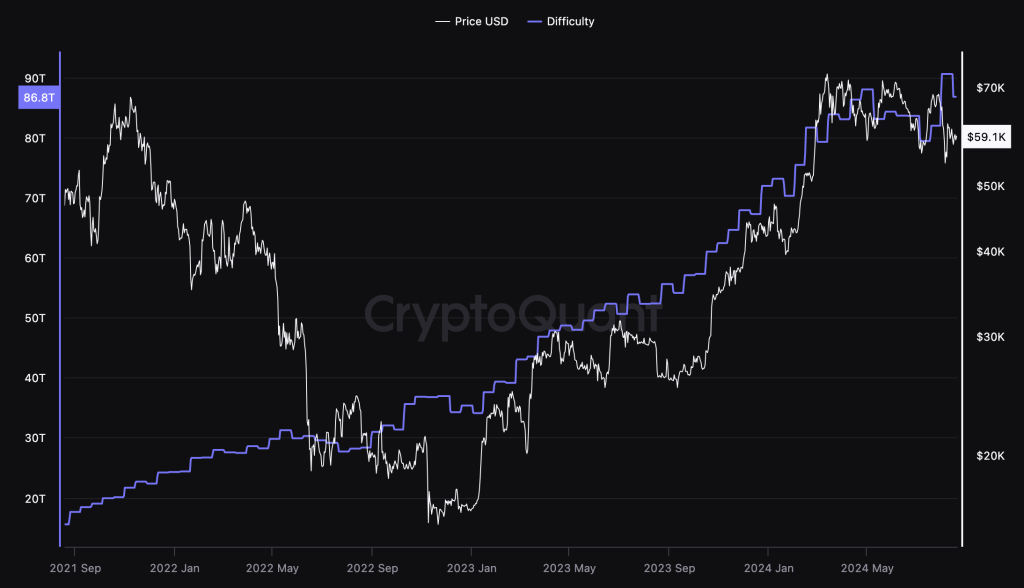
On Aug. 11, Bitcoin miners recorded the lowest levels of daily revenue in 2024, highlighting the profit squeeze miners are experiencing.
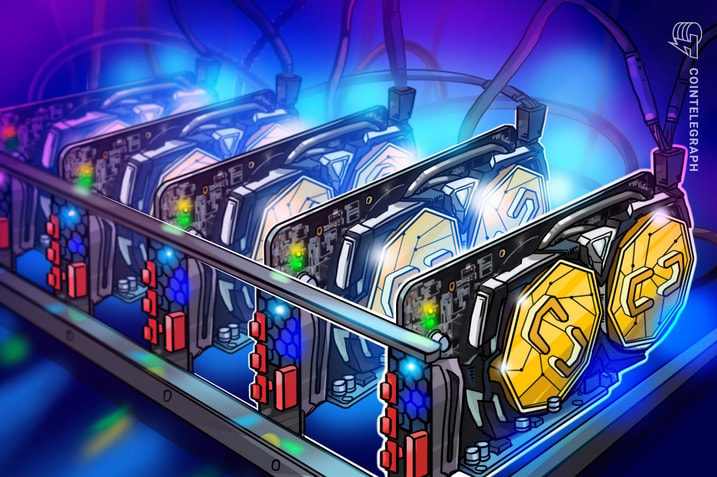
The Bitcoin (BTC) Hash Ribbons indicator, a metric that uses 30-day and 60-day moving averages to measure difficulty and financial challenges for miners, has signaled the potential end of miner capitulation, according to data from CryptoQuant.
When the 30-day moving average of the indicator crosses over the 60-day moving average, this signals an end to miner capitulation, as miners shift to more efficient mining equipment and re-enter the market.
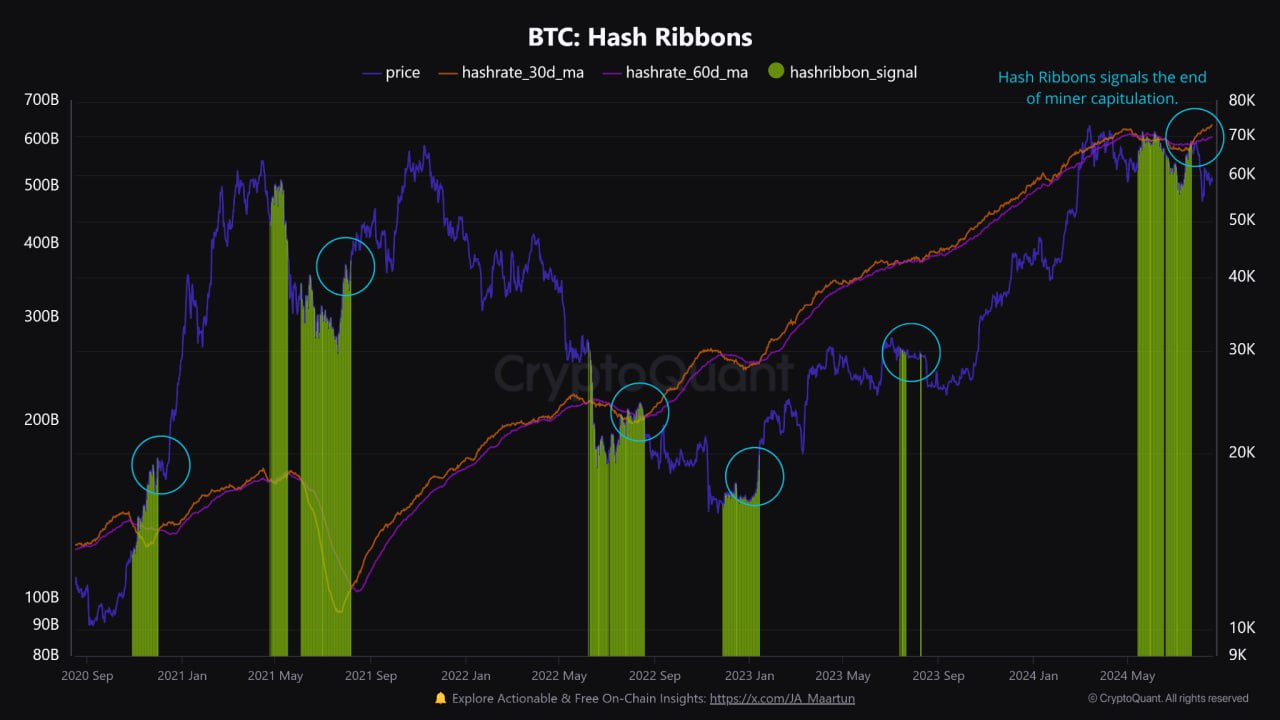
This often coincides with price bottoms for the scarce digital asset, according to the analytics firm, and offers an opportunity for investors to enter the market at a more advantageous price by carefully timing their entrance and buying the dip.
Mining difficulty reaches new all-time high
On Aug. 1, the Bitcoin mining difficulty, a measure of the computational power required to successfully mine a single Bitcoin, reached a new all-time high, hitting 90.66 trillion. Since then, the difficulty has adjusted down to 86.8 trillion—a slight improvement but still much higher than historic difficulty levels.
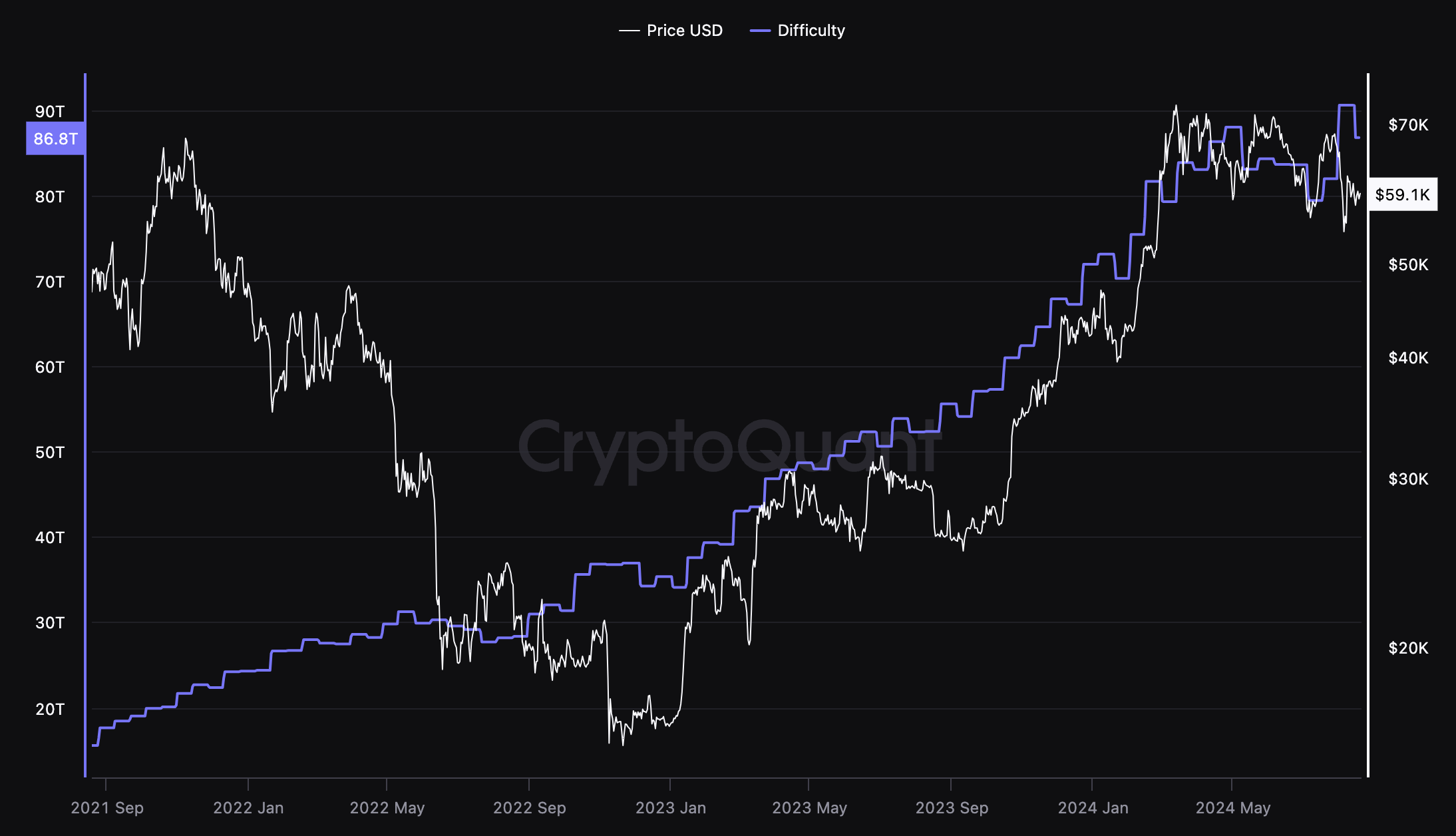
Related: Bitcoin miners may gain $13.9B yearly from 20% shift to AI and HPC — VanEck
As expected, this increased difficulty eroded miner profit margins, causing the miner hashprice, a metric that measures miner profitability, to fall to record lows of under $36 petahashes per second (PH/s). Miner hashprice later rebounded to around $40 PH/s but even this level is dangerously close to historic lows.
Bitcoin miners diversify into other forms of high-powered computing services
The slow erosion of miner profit margins due to both increased computational power and a decreased block reward subsidy post-halving is driving miners to convert a portion of their mining operations to artificial intelligence and high-powered computing services.
In July, Bitcoin mining company TeraWulf announced it was diversifying operations into high-performance computing and AI data centers through the construction of a new facility at the company’s Lake Mariner site, allocating 2 megawatts of power for the company’s initial foray into data center services.



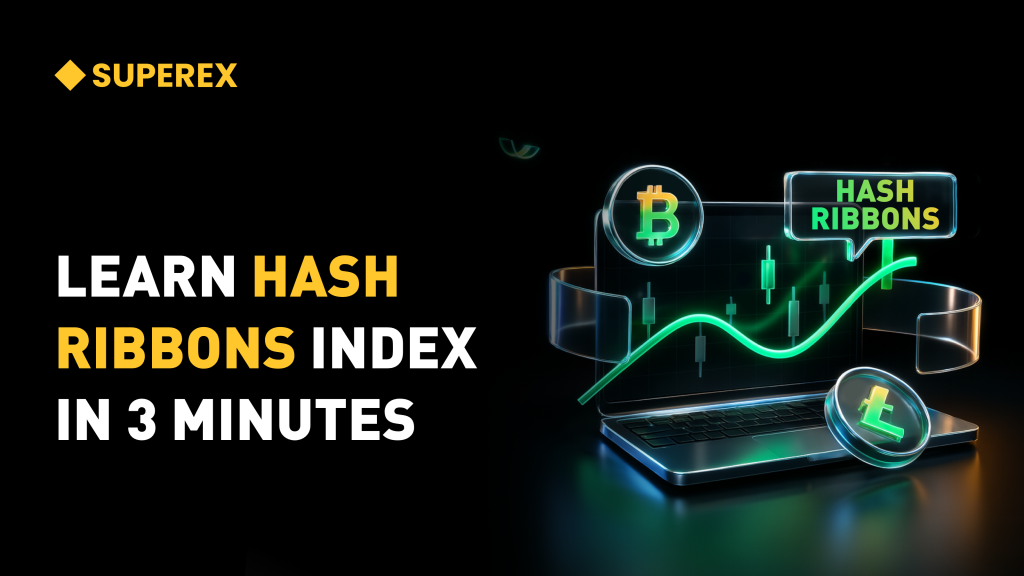


Responses